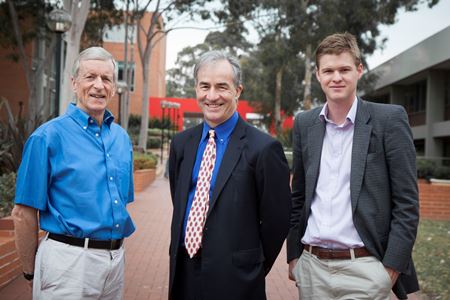Hopkins Global History Project

A.G. Hopkins Returns to History at Western Sydney University in 2014
Tuesday, 14 October 2014: Professor Hopkins participated in a roundtable discussion involving historians from Western Sydney University and the University of Sydney, 'Why Economics Matters to Historians'. This was part of the 'Inventing the International' ARC Laureate Program at the University of Sydney.
Tuesday, 14 October 2014 5.30 pm - 7.00 pm:
Public Lecture: 'Is Globalisation Yesterday's News?'
University of Sydney: Quadrangle Building, General Lecture Theatre K2.05
In conjunction with the 'Inventing the International' ARC Laureate Program, Professor Hopkins presented a public lecture.
Abstract:
Globalisation envelopes the world - and historians too. The 'g' word is now mandatory in titles of books and articles; PhD students follow their leaders in dedicating their dissertations to the subject. Yet, not so long ago postmodern approaches to the past were equally compelling: if you could not tell your trope from your alterity and your Spivak from your Bhaba, your chances of landing a job were minimal. Wise investors buy at the bottom of the market and get out at the top. So, it is worth asking whether shares in globalisation have further to run or whether full value is already in the market. One way of answering this question is by considering the reasons why historiographical phases, like empires, rise, flourish and decline. This approach provides pointers to the current state of globalisation studies and offers an estimate of the current value of the shares. The advice does with a wealth warning; past performance has limited predictive power. As a famous trumpeter remarked when asked which way jazz was going: 'Man, if I knew which way jazz was going, I would be there already!'
Wednesday/Thursday, 15-16 October
Globalisation Workshop: Nature and the Natural World
Western Sydney University, Parramatta Campus PS-EE.G.36
This workshop with scholars from Western Sydney University and further afield focused on the forthcoming edited collection.
While a Western Sydney University Visitor, Professor Hopkins also visited the University of Melbourne and ANU.
Mobile options:

